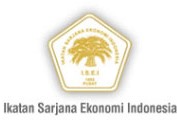Analysis of the Sustainability of MSMEs in the Covid-19 Pandemic Era
(1) Univ Serang Raya
Abstract
Micro, Small and Medium Enterprises (MSMEs) have an important role in the economy of a nation. The aim of research was to know the factors that can increase and effect on increasing of the competitiveness of MSMEs. To achieve this goal, a study was conducted on MSMEs in Regency and Serang City through a population of 26,909. Survey method was used to achieve this goal, while the sampling technique was simple random sampling. Based on this technique, a total sample size of 100 MSMEs was obtained, while the analysis in achieving the objectives used path analysis. The results showed that the innovation variables and the quality of human resources had an effect on the competitiveness of MSMEs. The variable which is significant and affects the competitiveness of MSMEs is the variable of human resources. Theoretically, human resources have a more important role in increasing the competitiveness of MSMEs compared to innovation
Keywords
Full Text:
PDFReferences
Aa, V.D., & Elfring, T. (2002). Realizing Innovation in Services. Scand. J. Manag. 18, 155–171, doi:10.1016/S0956‐ 5221(00)00040‐3.
Acheampong, G., & Hinson, R. E. (2018). Benefitting from Alter Resources: Network Diffusion and SME Survival. J. Small Bus. Entrep. 31, 141–158, doi:10.1080/08276331.2018.1462620.
Ahmedova, S. (2015). Factors for Increasing the Competitiveness of Small and Medium‐Sized Enterprises (SMEs) in Bulgaria. Procedia Soc. Behav. Sci. 195, 1104–1112, doi:10.1016/j.sbspro.2015.06.155.
Aldaba, R. & Aldaba, F. (2010). Assessing the Spillover Effects of FDI to the Philippines; Philippine Institute for Development Studies: Makati, Philippine.
Alvarez, R. & Crespi, G. (2003). Determinants of Technical Efficiency in Small Firms. Small Bus. Econ. 20, 233-244, doi:10.1023/A:1022804419183.
Amri, A. (2020). The Impact of Covid-19 on MSMEs in Indonesia [Dampak Covid-19 terhadap UMKM di Indonesia]. Jurnal Brand. 2(1) 123-31.
Asare, R., Akuffobea, M., Quaye, W. & Atta‐Antwi, K. (2015). Characteristics of Micro, Small, and Medium Enterprises in Ghana: Gender and Implications for Economic Growth. Afr. J. Sci. Technol. Innov. Dev. 7, 26–35, doi:10.1080/20421338.2014.979651.
Atalay, M., Anafarta, N. & Sarvan, F. (2013). The Relationship between Innovation and Firm Performance: An Empirical Evidence from the Turkish Automotive Supplier Industry. Procedia Soc. Behav. Sci. 75, 226– 235
Ayyagari, M., Kunt, A. D., & Maksimovic, V. (2014). Who Creates Jobs in Developing Countries? Small Bus. Econ. 43, 75–99, doi:10.1007/s11187‐014‐9549‐5.
Bayarcelok, E. B., Tasel, F., & Apak, S. (2014). Research on Determining Innovation Factors for SMEs. Procedia Soc. Behav. Sci. 150, 202–211, doi:10.1016/j.sbspro.2014.09.032.
Bilal, Z. O., & Al Mqbali, N. S. (2015). Challenges, and Constraints Faced by Small and Medium Enterprises (SMEs) in AL Batinah Governorate of Oman. World J. Entrep. Manag. Sustain. Dev. 11, 120–130, doi:10.1108/WJEMSD‐05‐2014‐0012.
Bonito, A. & Pais, C. (2018). The Macroeconomic Determinants of the Adoption of IFRS for SMEs. Span. Account. Rev, 21, 116–127, doi:10.1016/j.rcsar.2018.03.001.
Cagliano, R., Blackmon, K., & Voss, C. (2001), Small firms under MICROSCOPE: international difference in production/operations management practices and performance, Integrated Manufacturing Systems, 12(7), 469-82.
Carpinetti, L. C. R., Gerolamo, M. C., & Dorta, M. (2000). A conceptual framework for deployment of strategy-related continuous improvements, The TQM Magazine, 12(5), 340-9
Choi, Y. S., & Lim, U. (2017). Contextual Factors Affecting the Innovation Performance of Manufacturing SMEs in Korea: A Structural Equation Modeling Approach. Sustainability, 9, 1–15, doi:10.3390/su9071193.
Chou, T. C., & Hsu, L. L. (2005). Towards a framework of the performance evaluation of SMEs industry portals, Industrial Management & Data Systems, 105(4), 527-44
Cramer, J. (2006). Corporate Social Responsibility and Globalisation: an action plan for business: Sheffield, Great Britain: Greenleaf Publishing
Cravo, T., Gourlay, A., & Becker, B. (2012). SMEs and regional economic growth in Brazil. Small Bus. Econ. 38, 217–230, doi:10.1007/s11187‐010‐9261‐z.
Das, M., Rangarajan, K, & Dutta, G. (2020). Corporate Sustainability in SMEs: an Asian Perspective. Journal of Asia Business Studies, 14(1), 109-138.
Doh, S., & Kim, B. (2014). Government Support for SME Innovations in the Regional Industries: The Case of Government Financial Support Programme in South Korea. Res. Policy 2014, 43, 1557–1569, doi:10.1016/j.respol.2014.05.001.
Duygulu, E., Ozeren, E., Isildar, P., & Appolloni, A. (2016). The Sustainable Stratedy for Small and Medium Sized Enterprices: The Relationship between Mission Statements and Performance. J. Sustain. 2016, 8, 2–16, doi:10.3390/su8070698.
Edwards, T., Delbridge, R., & Munday, M. (2005). Understanding Innovation in Small and Medium‐Sized Enterprises: A Process Manifest. Technovation, 25, 1119–1127.
Eravia, D., & Handayani, T. (2015). The Opportunities and Threats of Small and Medium Enterprises in Pakanbaru: Comparison between SMEs in Food and Restaurant Industries. Procedia Soc. Behav. Sci. 169, 88–97.
European Union. (2018). Annual Report on European SMEs 2017/18. Retrived from https://publications. europa.eu/en/publication-detail/-/publication/a435b6ed-e888-11e8-b690-01aa75ed71a1language-en
Fleury, A. & Fleury, M. T. (2003). Competitive strategies and core competencies: perspectives for the internationalization of industry in Brazil, Integrated Manufacturing Systems, 14(1), 16-25
Florido, J. S. V., Adame, M. G., & Tagle, M. A. O. (2015). Financial Strtegies, the Professional Development of Employers and Performance of SME’s (Aguascalientes Case). Procedia Soc. Behav. Sci. 174, 768– 775, doi:10.1016/j.sbspro.2015.01.613.
Fuller-Love, N. (2006). Management development in small firms, International Journal of Management Reviews, 8(3), 175-90
Gadenne, D. L., Kennedy, J., & McKeiver, C. (2009). An empirical study of environmental awareness and practices in SMEs. Journal of Business Ethics, 84(1), 45-63
Herliana, S. (2015). Regional Innovation Cluster for Small and Medium Enterprises (SME): A Triple Helix Concept.Procedia Soc. Behav. Sci. 169, 151–160.
Hobbs, J. (2000). Promoting Cleaner Production in SMEs. In R. Hilary (Ed.), SMEs and the Environment (pp. 149-157). Sheffield, Great Britain: Greenleaf Publishing
Hoyer, W. (2016). Restoring EU Competitiveness. European Investment Bank. 1–52. Retrived from: https://www.eib.org/attachments/efs/restoring_eu_competitiveness_en.pdf (accessed on 12 February 2020).
IFC. (2011). Financials and Projects. International Finance Corporation: Washington, DC, USA.
Jabłoński, A. (2015). Network dynamics and business model dynamics in improving a company’s performance. International Journal of Economics, III(1), 1-10
Junquera, B. (2018). Sustainability in SMEs. MDPI, special issue. Economic and Business aspects of sustainability. Retrived from https://www.mdpi.com/journal/sustainability/special_issues/Sustainability_SMEs
Kayanula, D., & Quartey, P. (2000). The Policy Environment for Promoting Small, Medium Enterprises in Ghana and Malawi; Institute of Development Policy Management (IDPM), University of Manchester: Manchester, UK.
Kim, J. S. & Arnold, P. (1996). Operationalising manufacturing strategy: an exploratory study of constructs and linkage, International Journal of Operations & Production Management, 16(12), 45-73
Kumara, P. (2019). Expanding the Production Possibility Frontier of Sri Lanka: A Historical Economic Perspective on Technological Progress. Sri Lanka J. Econ. Res. 6, 83–90.
Kurowska-Pysz, J., & Gregor, M. (2014). The transfer of knowledge in technological cross‐border industry cluster–case study. Management Systems in Production Engineering, 2(14), 63-67
Lai-Yu, T.F. (2001). Toward a capabilities perspective of the small firms, International Journal of Management Reviews, 3(3), 185-97.
Lesakova, L. (2014). Evaluating Innovations in Small and Medium Enterprises in Slovakia. Procedia Soc. Behav. Sci. 110, 74–81, doi:10.1016/j.sbspro.2013.12.849.
Martin, F. M., Ciovica, L. & Cristescu, M. P. (2013). The implication of Human Capital in the Development of SMEs Through ICT Adoption. Procedia Econ. Financ. 6, 748–753, doi:10.1016/S2212‐5671(13)00198‐6.
McAdam, M., McAdam, R., Dunn, A., & McCall, C. (2016). Regional Horizontal Networks within the SME Agri‐Food Sectir: An Innovative and Social Network Perspective. Reg. Stud. 50, 1316–1329, doi:10.1080/00343404.2015.1007935.
Nadide, S., & Doğan, I. (2014). The Impact of Foreign Direct Investments on SMEs’ Development. Soc. Behav. Sci. 150, 107–115, doi:10.1016/j.sbspro.2014.09.012.
Noe, R., Hollenbeck, J., Gerhart, B. & Wright, P. (2017). Human Resource Management: Gaining a Competitive Advantage, 9th ed.; McGraw‐Hill: New York, NY, USA.
Ntwoku, H., Negash, S., & Meso, P. (2017). ICT Adoption in Cameroon SME: Application of Bass Diffusion Model. Inf. Technol. Dev. 23, 296–317, doi:10.1080/02681102.2017.1289884.
Nugroho, M.A., Susilo, A.Z., Fajar, M.A., & Rahmawati, D. (2017). Exploratory Study of SMEs Technology Adoption Readiness Factors. Procedia Comput. Sci. 124, 329–336, doi:10.1016/j.procs.2017.12.162.
Onyusheva, I. (2017). Analytical and Managerial Issues of Human Capital in Conditions of Global Competitiveness: The Case of Kazakhstan. Pol. J. Manag. Stud. 16, 198–209.
Pakpahan, A. K. (2020). Covid-19 and implications for Micro, Small and Medium Enterprises [Covid-19 dan implikasi bagi Usaha Mikro, Kecil, dan Menengah]. JIHI: Jurnal Ilmiah Hubungan Internasional. Edisi Khusus (2020): 59-64. http://journal.unpar.ac.id/index.php/JurnalIlmiahHubunganInternasiona/article/view/3870
Parasuraman, A. (2000). Technology Readiness Index (TRI): A Multiple Item Scale to Measure Readiness to Embrace New Technologies. J. Serv. Res. 2, 307–320, doi:10.1177/109467050024001.
Perrini, F., & Tencati, A. (2006). Sustainability and stakeholder management: the need for new corporate performance evaluation and reporting systems. Business Strategy and the Environment, 15(5), 296- 308.
Prasanna, et al. (2019). Sustainability of SMEs in the Competition: A Systematic review on technological challenges and SME Performance. Journal of Open Innovation: Technology, Market, and Complexity, 5(100)
Quayle, M. & Christiansen, J. K. (2004). Business Issues in the 21st Century: An Empirical Study of E‐Commerce Adoption in UK and Denmark SMEs. Electron. Commer. Small Medium Sized Enterp. 53–68, doi:10.4018/978‐1‐59140‐146‐9.ch004.
Raymond, L., & Croteau, A. M. (2006). Enabling the strategic development of SMEs through advanced manufacturing systems, Industrial Management & Data Systems, 106(7), 1012-32.
Rogers, E. (2010). Diffusion of Innovations; New York: Simson and Schuster.
Sambamurthy, V., Bharadwaj, A., & Grover, V. (2003). Shaping agility through digital options: reconceptualizing the role of information technology in contemporary firms, MIS Quarterly, 27 (2), 237-63
Sceulovs, D., & Sarkar, E. G. (2014). Impact of e‐Environment on SMEs Business Development. Procedia Soc. Behav. Sci. 156, 409–413, doi:10.1016/j.sbspro.2014.11.212.
Singh, R. K., Garg, S. K., & Deshmukh, S. G. (2006). Strategy development by Indian SMEs in plastic sector: an empirical study, Singapore Management Review, 28(2), 65-83
Singh, R. K., Garg, S. K., & Deshmukh, S. G. (2008). Strategy Development by SMEs for Competitiveness: A Review. Benchmarking Int. J. 15, 525–547, doi:10.1016/j.sbspro.2015.01.289.
Singh, R. K., Garg, S. K., & Deshmukh, S. G. (2009). The Competitiveness of SMEs in Globalized Economy, Observations from China and India. Manag. Res. Rev. 33, 54–65, doi 10.1108/01409171011011562.
Soomro, Z. A., Shah, M. H., & Ahmed, J. (2016). Information Security Management Needs More Holistic Approach: A Literature Review. Int. J. Inf. Manag. 36, 215–225, doi:10.1016/j.ijinfomgt.2015.11.009.
Soon, T. T. (1994). A Pragmatic Approach to SME Development in Singapore. J. Small Bus. Entrep. 11, 38–45, doi:10.1080/08276331.1994.10600455.
Stec, M., & Grzebyk, M. (2018). The Implementation of the Strategy Europe 2020 Objectives in European Union Countries: The Concept Analysis and Statistical Evaluation. Qual. Quant. 52, 119–130
Suh, C. J, & Lee, I. T. (2018). An Empirical Study on the Manufacturing Firm’s Strategic Choice for Sustainability in SMEs. Sustainability 10, 572
Sullivan, C. (2018). Strategic sustainability. Retrived from https://medium.com/@catlsullivan/what-does-sustainability-mean-for-an-sme-b9c1b34641cc
Sung, C. Y., Kim, K.C., & In, S. (2016). Small and Medium‐Sized Enterprises Policy in Korea from the 1960s to the 2000s and Beyond. Small Enterp. Res. 23, 262–275, doi:10.1080/13215906.2016.1269665.
Thompson, P. (2014). The sustainability imperative for small business. Retrived from https://www.ifac.org/knowledge-gateway/preparing-future-ready-professionals/discussion/sustainability-imperative-small-business
Unnikrishnan, S., Iqbal, R., Singh, A. & Nimkar, I.M. (2015). Safety Management Practices in Small and Medium Enterprises in India. Saf. Health Work, 6, 46–55, doi:10.1016/j.shaw.2014.10.006.
Voinescu, R. & Moisoiu, C. (2015). Competitiveness, Theoretical and Policy Approaches. Towards a More Competitive EU. Procedia Econ. Financ. 22, 512–521.
Waddock, S., & Bodwell, C. (2004). Managing responsibility: what can be learned from the quality movement? California Management Review, 47(1), 25-37
Webb, B., & Schlemmer, F. (2008). Information Technology and Competitive Advantage in Small Firms. London, UK: Taylor Francis.
World Bank. (2017). Enterprise Surveys; World Bank Group: Washinton, DC, USA.
World Trade Organization, (2016). World Trade Report 2016. Geneva, Switzerland.
Yanah, Y., Nakhwatunnisa, H., & Sukarno, T. (2018). Strategy to Increase the Competitiveness of SME’s Entreprises. JEJAK: Jurnal Ekonomi dan Kebijakan, 11(1), 138- 150. doi: https://doi.org/10.15294/jejak. v11i1.11705
Zeeshan, S. A., Cheung, Y., & Scheepers, H. (2007). Developing a collaborative organizational mobile commerce model. In Proceedings of the International Conference on Business and Information, Tokyo, Japan, 01 January 2007.
Refbacks
- There are currently no refbacks.

This work is licensed under a Creative Commons Attribution 4.0 International License.






